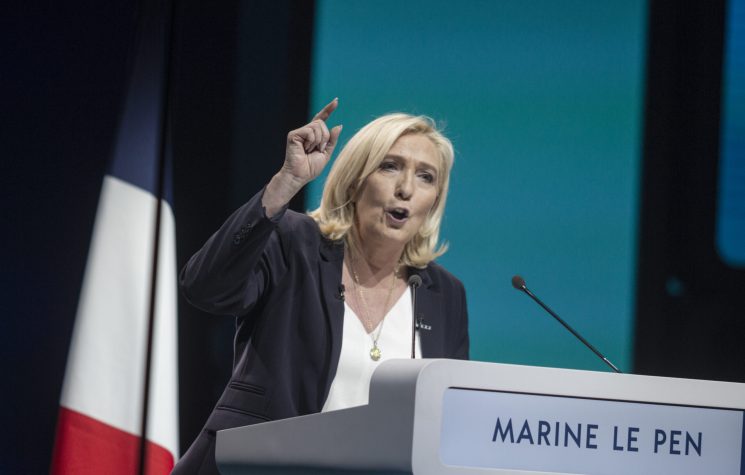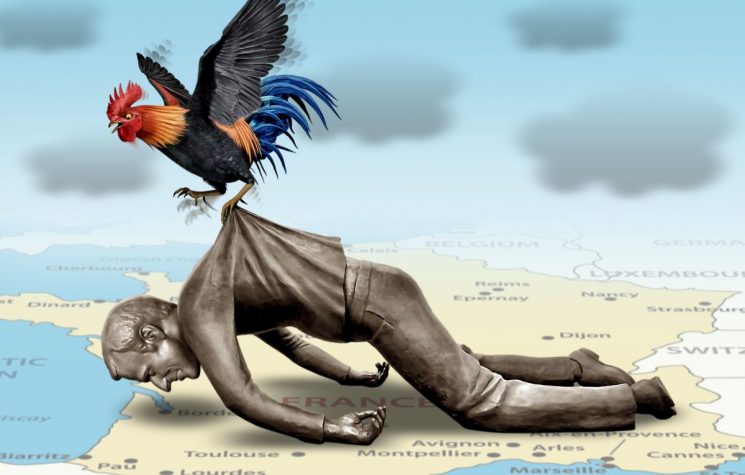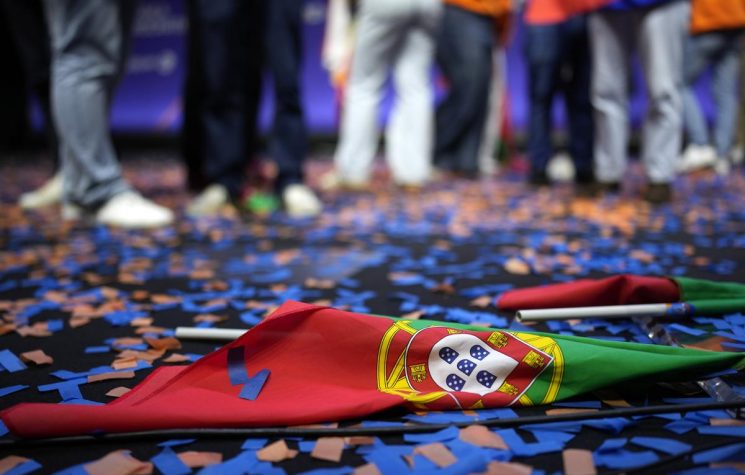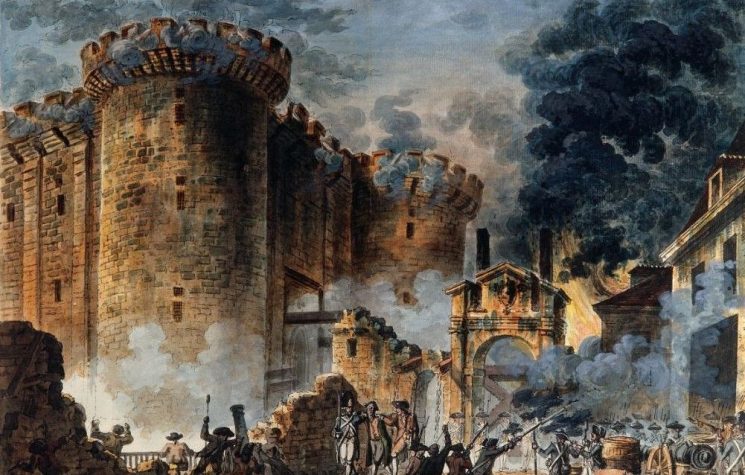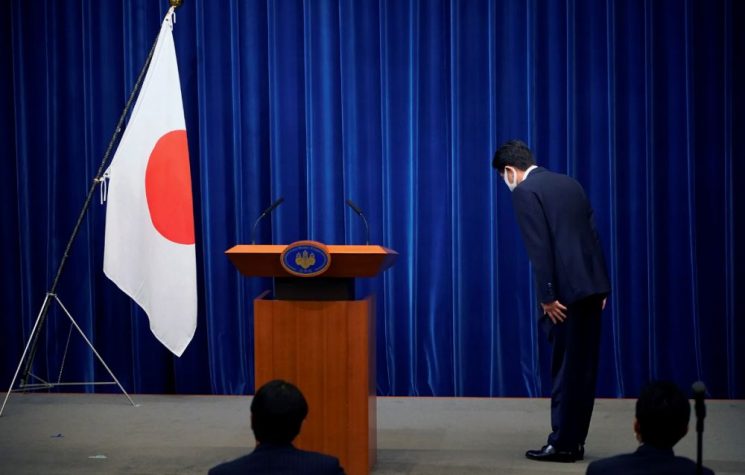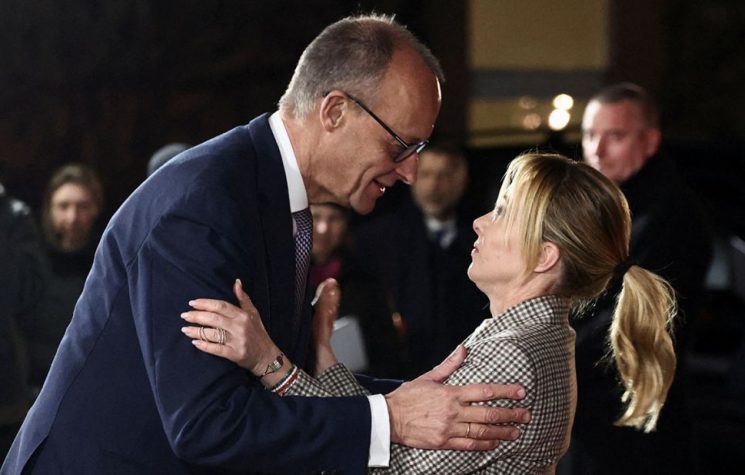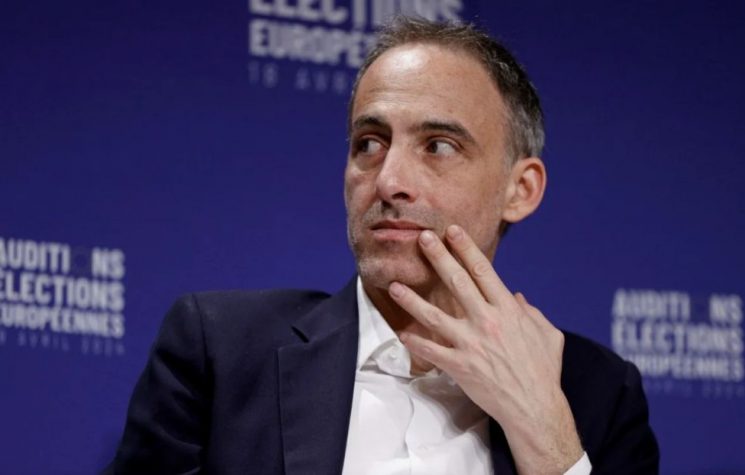All those who were saved from the precipice by the ingenuity of the left and today present themselves as champions of democracy and freedom will be hailing Marine Le Pen as the only one capable of guaranteeing order and social cohesion.
Contact us: info@strategic-culture.su
The big loser in the French elections was not the far-right. It is certain that, if it were not for the spurious agreements between the New Popular Front and the Macronists, the National Regroupment would have grown even more. But the result of the second round is not exactly a victory for the left.
After Marine Le Pen’s RN led the first round of elections, the NFP leaders fell into the trap of the French press and Emmanuel Macron, abandoning numerous candidacies of their own to increase the chances of the neoliberal right linked to the Renaissance party beating the far right .
The French big bourgeoisie called for a “republican front” to create a “cordon sanitaire” formed by the left and the neoliberal right in order to prevent an overwhelming victory for the RN, which led to agreements in around 220 electoral districts so that the candidate with a supposedly lower chance to defeat the RN would abandon the race in favor of the candidate with a greater chance. But most of the abandonments were from the NFP so that Macron’s allies could beat Le Pen’s allies, although the NFP came in second in the first round, far ahead of Macron’s coalition.
Far-right rivals were relieved with the results, as parliament is now fragmented and not dominated by the RN. But they missed the opportunity to bury the Macronist right, that is, the traditional neoliberal right, which in recent years has been paving the way for fascism by applying a policy increasingly similar to that defended by Le Pen.
In fact, the ruling right-wing coalition lost 82 seats in the National Assembly, compared to the last elections. It suffered a reduction in one third of its deputies. The Republicans, also from the traditional neoliberal right, lost a quarter of their legislators. The right wing of the Fifth Republic was the biggest defeat, without a doubt.
This means that their votes were split, with the majority obviously going to the far right. RN increased its bench by 38%. The other part of the votes went to the left. The NFP won 18% more seats than in the last elections. However, it was the right wing of the NFP that captured the majority of these votes.
While the number of deputies elected by France Unbowed practically did not change, the Socialist Party went from 30 to 59, doubling the number of seats in parliament. The PS, like all former European social democracy (German SPD, British Labor, Spanish PSOE), adhered to neoliberalism many decades ago. It is nothing more than a left wing of the Fifth Republic, that is, of the current French imperialist regime – just remember that the PS governed France when it invaded Mali, is anti-Russia and helps to sustain Zionism.
The other party on the right wing of the NFP that benefited in these elections was the Greens, which showed growth of 18%. Therefore, the conclusions based on the electoral results are the following: 1) the Macronist neoliberal right was the biggest loser, but it did not fall to rock bottom because 2) the left saved it, afraid of the far-right, although 3) within the left-wing forces, the great beneficiary has been neoliberal social democracy, which applies a “pink neoliberalism” that differs little from Macron 4) the far-right was merely contained and, as Le Pen said, his victory was only “postponed”.
Social tension will not be contained
The French imperialist big bourgeoisie manipulated the results of the elections with the main goal of containing the popular masses that have been sweeping the big cities with a growing revolt in recent years. An apparent victory for the left pleases a portion of these masses, who still believe that the PS and LFI will lead their country to social transformation.
A victory for the center-left, that is, for the traditional reformists who are now chosen by the bourgeoisie to administer France, also momentarily contains the rise of the far-right to power, which gives more time for negotiations between the different wings of the bourgeoisie.
All cities with more than 200,000 inhabitants voted overwhelmingly for NFP candidates. But in Marseille, the second largest city in the country, the traditional stage for the southern workers’ movement, the RN managed to win in half of the constituencies, which serves as a warning about the possible direction of a portion of the proletariat towards the far-right.
Because, in the countryside and in small towns, support for RN is already very visible. The French countryside is where the far-right’s large electoral base lives. And he has a strength that cannot be ignored. It was precisely small and medium-sized rural producers who generated a huge crisis throughout the European Union between the end of last year and the beginning of this year, parading their tractors through all the metropolises (and in 85% of French departments), as if remembering the government that they exist and can help to overthrow it and transform the country.
Just like the urban proletariat, the middle and lower classes in the countryside are also angry with neoliberal policies. Over the last 40 years, the State has handed over the entire duty of providing infrastructure to rural populations to the private sector. But the private sector does not invest in the field, because it does not see great returns. There are far fewer hospitals and clinics than necessary, for example. Only the State is fully capable of guaranteeing these services, but it has been absent in recent decades.
Young people in the countryside, like those in cities, are the most affected. They have less access to education and, therefore, less chance of being successful in the very competitive job market. In the last decade, the rate of young people without sufficient education, without employment and without completing an internship has been much higher in the countryside than in the cities and women in the countryside also get fewer jobs than men, compared to women in the cities. The woke ideology, proclaimed by both the Macron regime and the reformist left of the NFP, does not solve any of the problems of these women, who end up being attracted to the far-right.
One of the main pillars that support the capitalist regime is the alliance between the big bourgeoisie and the middle class, both in the city and in the countryside. And this pillar is gradually falling, as the quality of life and the economic and material conditions of the middle class have deteriorated sharply this century. The only alternative to improving the lives of the impoverished middle class is to ally with workers, who are also increasingly dissatisfied. Both classes have been attacking the French regime, but not in a unified way.
Who could unify these classes to fight the regime together, and thus inevitably overthrow it, would be the French left. The problem is that she is not interested in overthrowing the regime, but is happily part of it. And if she is part of the regime, she is its accomplice. Accomplice of a regime that exploits and oppresses the majority of the population. The far-right has been able to use this fact in its propaganda to attract the urban and rural middle classes and part of the disorganized proletariat, especially in smaller cities, where deindustrialization is very visible. But, as she has also demonstrated that she is part of this regime – by aligning herself with Macron on several occasions –, she still has great rejection among the popular classes, who have been radicalizing but lack political direction.
In any case, the far-right continues to grow. And, although the French bourgeoisie has not yet unified around the RN, the crisis of the traditional right is leading a significant part of this bourgeoisie to support it. The tendency in France is for the popular classes, driven by urban workers, to also come into conflict with social democracy and the left for whom they just voted, because if it forms or is part of the new government, it will inevitably continue the hated neoliberal policy. A social upheaval, which is increasingly likely, will threaten to sweep away the regime and this will mean that the part of the bourgeoisie that today believes that the left wing of its employees can save the regime will also start supporting the far-right as the only capable force to contain the workers’ revolt.
So, all those who were saved from the precipice by the ingenuity of the left and today present themselves as champions of democracy and freedom will be hailing Marine Le Pen as the only one capable of guaranteeing order and social cohesion.












